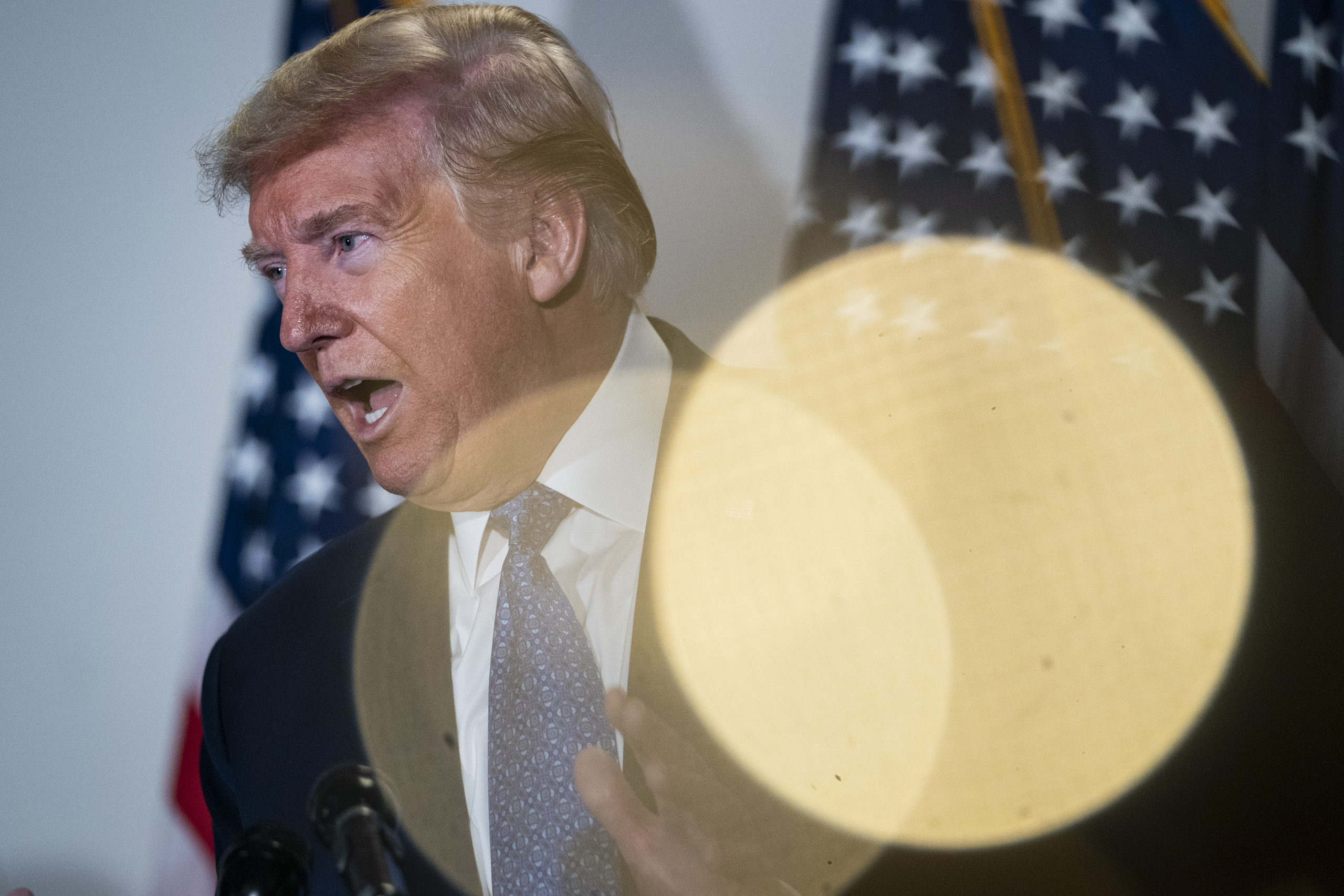Trump Signs Executive Order Targeting Social Media’s Content Policies: Instant Reaction

President Donald Trump signed an executive order Thursday targeting social media companies’ content moderation policies, imploring the Federal Trade Commission to review complaints of political bias on the platforms and the Federal Communications Commission to review how it regulates liability protections afforded by Section 230 of the Communications Decency Act.
The order appears to be a response to Twitter Inc.’s decision Tuesday to place fact-check labels on two of the president’s tweets that included unsupported claims about mail-in voting. On Wednesday, Trump signaled that he would either “strongly regulate” or shut down social media platforms as a result. Last week, The Wall Street Journal reported that the White House was examining new ways to review accusations of anti-conservative bias on social media platforms, including the possible creation of a new commission to look at such claims.
The executive order lays out the following:
-- Within 30 days, the Commerce Department’s National Telecommunications and Information Administration will request that the FCC provide regulations to roll back how Section 230 protections are afforded.
-- The FTC is being asked to consider viewing incidents where social media companies “restrict speech in ways that do not align with those entities’ public representations about those practices” as an unfair or deceptive act and regulate them accordingly.
-- And each executive department and agency is being asked to review its federal spending on advertisements on social media platforms and to submit a report of such spending to the Office of Management and Budget in the next 30 days.
Morning Consult asked experts and analysts for their opinions on Trump’s executive order:
John Bergmayer, legal director, Public Knowledge
“If Trump tells the NTIA to file a petition with the FCC, he has the authority to make the NTIA do that, but there is no legal mechanism by which the president can tell the FCC to do anything,” Bergmayer said, noting that even if the FCC did what the president wants, the courts would likely strike it down.
“I have no doubt that there are people in the president’s legal team, and the president himself, who think that they have a good legal argument. It’s one that the courts have not ever embraced, but maybe they think they can influence judges at some point to reverse decades of rulings on Section 230. The odds of any of that are pretty slim, and I would say that this is largely about saying, ‘I have the power to make your life miserable whether or not the law is on my side, so you should maybe be nice to me.’”
Aaron Mackey, staff attorney, Electronic Frontier Foundation
Regarding Section 230 liability protections, the executive order “makes an erroneous reading of the statute in an effort to rewrite it and make it fit a narrative that the president wants it to fit, and it’s all done in sort of a naked attempt to retaliate against Twitter and the larger social media platforms for making decisions that the president doesn’t like,” Mackey said.
“To the extent that this EO and this process with the FCC tries to basically intrude on those decisions and set legal mandates for how they need to behave, there’s also a huge First Amendment problem here because it intrudes on a platform’s right to determine who gets to speak on their platform and how they can speak on their platform.”
Sharon Bradford Franklin, policy director, New America’s Open Technology Institute
“The bottom line is if the administration is seeking different interpretations of Section 230, that is something that either needs to happen through courts or through amendments to 230 -- an executive order can’t simply decree a different interpretation of Section 230 from what has been recognized at the courts,” Franklin said.
“It’s concerning that the administration is trying to pick a battle with the platforms over wanting to have content moderation rules that favor its views and may lead to censorship of other views with which it disagrees.”
Carl Szabo, vice president and general counsel, NetChoice
“It’s easy to say that whether you’re a conservative or a liberal, the thought of any administration being able to chill free speech online is something that should worry you,” Szabo said.
“One of the things that we hear is phrases like ‘we need to create ground rules for free speech online,’ but as soon as you do that, you realize that whoever holds the pen writes the rules, and they get to decide if speech gets to fall above or below a certain line.”
Sam Sabin previously worked at Morning Consult as a reporter covering tech.
Related content

As Yoon Visits White House, Public Opinion Headwinds Are Swirling at Home

The Salience of Abortion Rights, Which Helped Democrats Mightily in 2022, Has Started to Fade
